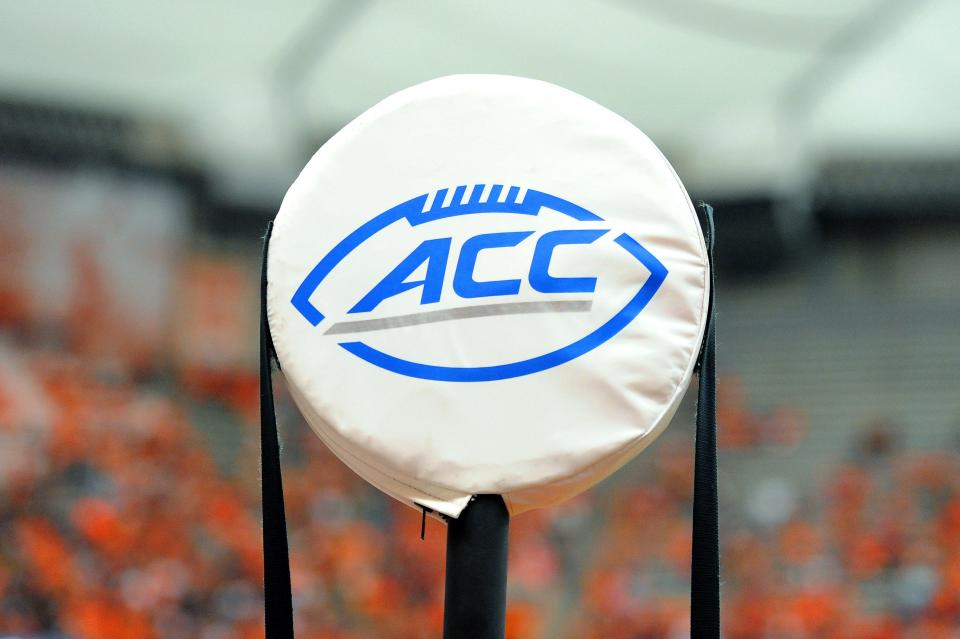If the ACC bends, here's why FSU, AD Alford may want to stick with the program

Michael Alford feels so strongly about Florida State’s powerful athletic brand that he has spreadsheets, graphs and data at the ready for board meetings or even one-on-one conversations.
Alford, the Seminoles’ savvy vice president and athletic director, wants to make sure his messaging is being accurately conveyed. He wants to share FSU’s investments and successes, discuss performance and proactively address any concerns.
Bottom line – and it’s always about the bottom line in college athletics – Alford firmly repeats what he has been saying for months.
The status-quo is unsustainable, and FSU is worth more than the $41 million in media rights revenue it's paid annually under the current ACC contract with ESPN that goes through 2036.
Well, what do you know?
It sounds like there’s a chance FSU – and Clemson, too – could stay in the ACC in return for an increased payout and an altered expiration of the league's touchy grant of rights.
This could help level the playing field and give schools like FSU and Clemson, not to mention the conference, more time to decipher the changing collegiate landscape. It feels like an early win that still meets the Seminoles' objectives.
Yahoo Sports and ESPN reported late Tuesday that talks between FSU, Clemson and ACC have ramped up in recent weeks on a proposal that would allow a greater share of revenue to all schools based on brand valuation and television ratings.
The move is designed to provide conference stability and preserve the membership of the Seminoles and Tigers, according to the reports.
All’s fair in love, war and legal disputes, right?
FSU Athletic Director Michael Alford makes revenue pitch to ACC
Ironically, Alford made a similar pitch during the league's 2023 spring meetings. He suggested a model based on performance and brand power. He asked for more money to go to schools that had success on the field as well as those that drew the highest ratings for television.
The league responded to member concerns with “success initiatives” that would reward programs for postseason success. However, there wasn’t any movement on a plan that included brand valuation or television ratings.
In the months that followed, FSU and Clemson filed ongoing lawsuits against the ACC in an effort to leave the conference without paying any penalties. That litigation expects to last years and cost the schools millions if a settlement isn't reached.
Where the Seminoles and Tigers may land, if anywhere in conference realignment, remains speculative. And recent programs on the move, like Cal, Stanford and SMU to the ACC and Washington and Oregon to the Big Ten, have agreed to lesser revenue payouts.
The ACC currently ranks third in revenue sharing amongst the power four conferences in the Big Ten, SEC and Big 12.
While ACC schools must still vote for an increased payout to FSU and Clemson, also remember not every conference school has the same athletic priorities, successes or desire to take or make less money. Revenue has been distributed equally among ACC members regardless of value or size.
This latest scenario if agreed upon also benefits ESPN, too.
ESPN, which could care less about how conferences distribute their money, keeps its ACC media content that includes FSU and Clemson and its money without sharing another penny.
Despite football struggles FSU athletics brand strong nationally
And it's more than just football.
Since it joined the ACC in 1991, FSU has won 106 ACC championships across all sports. By comparison, charter member Wake Forest has 56 over the last 71 years.
FSU football remains a national draw despite its stinker start at 0-3.
Last Saturday’s home defeat to Memphis, broadcast on ESPN at noon, topped the cable weekend chart with 1.59 million viewers. UTSA-Texas had 1.48 million in primetime. The Seminoles' Labor Day loss to Boston College saw an average of 3.48 million viewers to rank fifth among all games that weekend. Five million viewers watched the FSU-Georgia Tech college football opener in Dublin, Ireland, last month. It was the most-watched noon game on ESPN in eight years.
Another important part of the deal would be shortening the ACC media rights – potentially from 2036 to 2030 – to fall in line with the expiration of television deals in the more lucrative Big 12 and Big Ten.
TV contracts are expected to grow and conferences are expected to expand.
And bills aren't going anywhere.
FSU looks to navigate an increase in expenses that could go into effect next year. The Seminoles may spend an additional $25 million next year in payments to athletes and additional scholarship costs as a result of the House v. NCAA antitrust settlement. FSU currently spends around $9 million each year in scholarship expenses.
This is high-stakes poker.
That’s one reason why Alford, an unapologetic advocate for FSU whether teams are playing good, bad or ugly, is always ready to throw his best cards on the table.
A resolution is far from imminent, but improved financial terms in the ACC could be the best option for FSU.
Jim Henry is sports editor of the Tallahassee Democrat. Email him at jjhenry@tallahassee.com
This article originally appeared on Tallahassee Democrat: FSU sticking with the ACC? Here's why it may make sense for AD Alford

